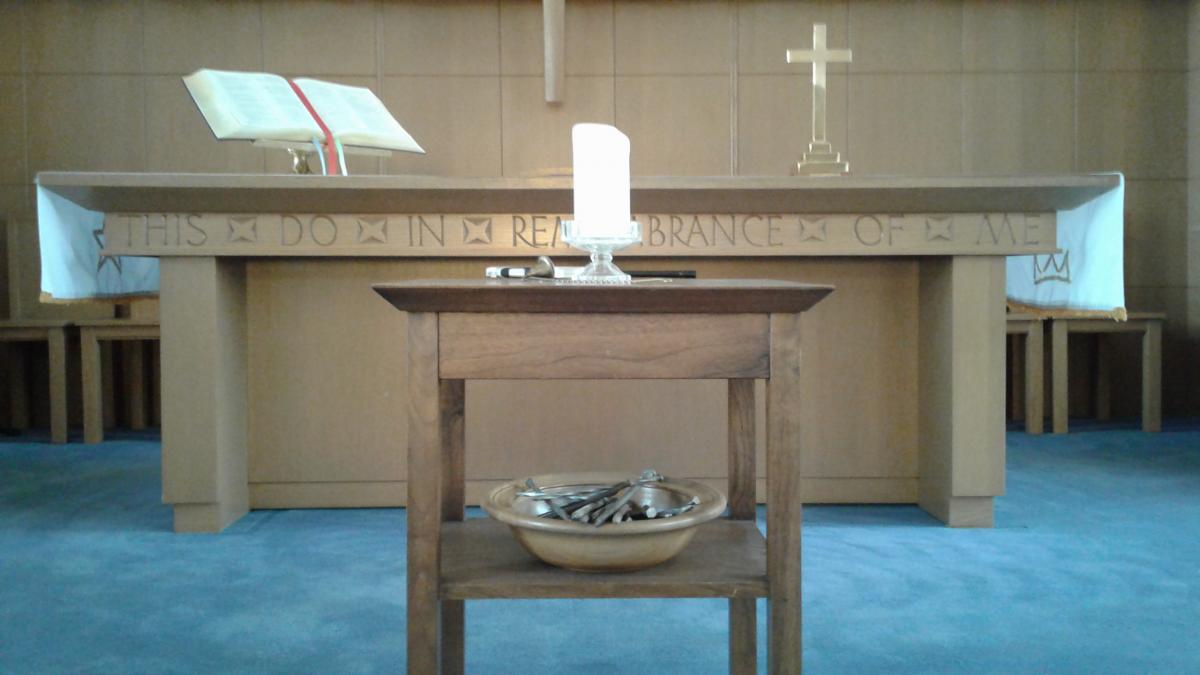Sermon - Sep 08, 2023 More than just a Holy day

More than just a Holy day
The Sabbath - as we’ve discovered over the last couple of weeks - is a firmly established biblical idea. Take a day - honour God - rest yourselves and celebrate your liberation. It is an idea we carry forward (and gladly) across the long and complicated history as those who love God (whom God loves…) but of course, there’s more at stake than just a holy day.
Scripture - whatever else it might reveal - offers the idea of a grand and complex cycle of life, death, and renewal. The pattern of the seasons; the ‘idea’ of a seven day week; a series of religious festivals, tied not only to significant milestones in the history of God’s people, but to the pattern of planting and harvest - scarcity and plenty - labour and leisure. Sabbath keeping is also intended to have larger, long-term consequences.
The notion of a seven-year cycle of debt forgiveness is one of those Old Testament ideas that doesn’t get a lot of play. (Funny how quick we are to imagine that the OT somehow describes ‘a different god’, but ignore this call to grace in God’s name…)
Every. Seven. Years - all debts are forgiven. What an idea! What liberation! Can you imagine the celebrations upon learning that everyone who owed something was given a fresh start - Every. Seven. Years…it would be transformative. It would go a long way to reducing the gap between the richest and the poorest. It would not just discourage, but render nearly impossible the relentless pursuit of gain that drives long-term interest-bearing loans, mortgages, and lines of credit.
Adoption of this approach to economics would have given us a radically different global economy - alas, there is no sign that such a generous approach was ever (even once) attempted.
And we don’t often hear about these ancient, radically wonderful ideas.
Somehow, we’ve become convinced that God is only concerned with ‘getting us to heaven.’ Too often we hear Jesus say “render unto Caesar what is Caesar’s” and we imagine that it means that God isn’t interested in the day-to-day business of our being human. Nothing could be further from the truth.
Jesus is Lord of all creation. His life and work - his words and actions - called attention to our behaviours and our societal systems. He told parables that suggested very radical approaches to economic, social relationships, generosity, and the pursuit of Holiness. Jesus wasn’t making these things up - they came from the ancient and radically wonderful ideas laid down in Torah. The best of the best of that ancient system of law and observance is brought to life in Jesus. And at the heart of it all, the command to honour the Sabbath and keep it holy…a commandment that has implications beyond a sacred day.
Forgiveness of debt; Rest for the land; A return to balance; A better sharing of limited resources - These are the building blocks of the kingdom of God.
Having turned God’s ‘ideal’ into a crystal-walled city in the clouds, it is hard to convince ourselves that we might have been misled. But the idea of a just society on earth - guided by the holy principles of rest and renewal - forgiveness and generosity - is much closer to the kind of kingdom Jesus proclaimed.
The suggestion that the kingdom was only a reward for the faithful departed is attractive, because it means we don’t have to change the world. If our personal salvation ensures our personal eternity, we might be content. It is certainly easier to manage my own behaviour to achieve the goal of ‘heavenly rest.’ But God is working toward the redemption of all creation. Christ is the Lord of ALL CREATION. The work is hard, and certainly not limited to personal ‘safety.’ There is so much to do, and Jesus’ invitation to follow him is an invitation to call out the destructive habits of humanity where economics and politics and social disorder block the path to a more generous, more just, and more caring global society.
Some of you will object - you will no doubt tell me that religion and politics and economic don’t mix. Yet we’ve had ample evidence that economies and political systems have been and are being manipulated by religious people for selfish purposes. The Scripture calls that kind of manipulation sin, and reminds us that the Lord of all these systems is the epitome of grace, mercy, and love. The pattern of Sabbath keeping, whether weekly - annually, or over a lifetime of jubilee moments - is a pattern that demonstrates the appropriate intersection of faith and daily life. God does not choose sides, God’s principles - revealed in the Scriptural witness and embodied by Jesus - offer possibilities.
We may not be willing to throw open the doors of radical forgiveness (as suggested by Deuteronomy 15) but we can and should live according to the spirit of generosity and grace that these words contain - a spirit found life and breath in Jesus - a spirit that still shines brightly wherever the church opens arms and doors to those whom society has pushed aside in the rush to success.
Our Sabbath keeping has a long way to go. It starts with a day for ourselves, but it will find perfection when the hungry are fed - and the poor are lifted up.
“Since there will never cease to be some in need on the earth, I therefore command you, ‘Open your hand to the poor and needy neighbour in your land.’”
The kingdom of God waits for us to seek more ‘sabbath moments.’
 St. John's
St. John's




